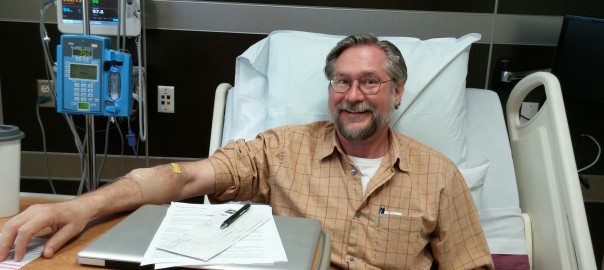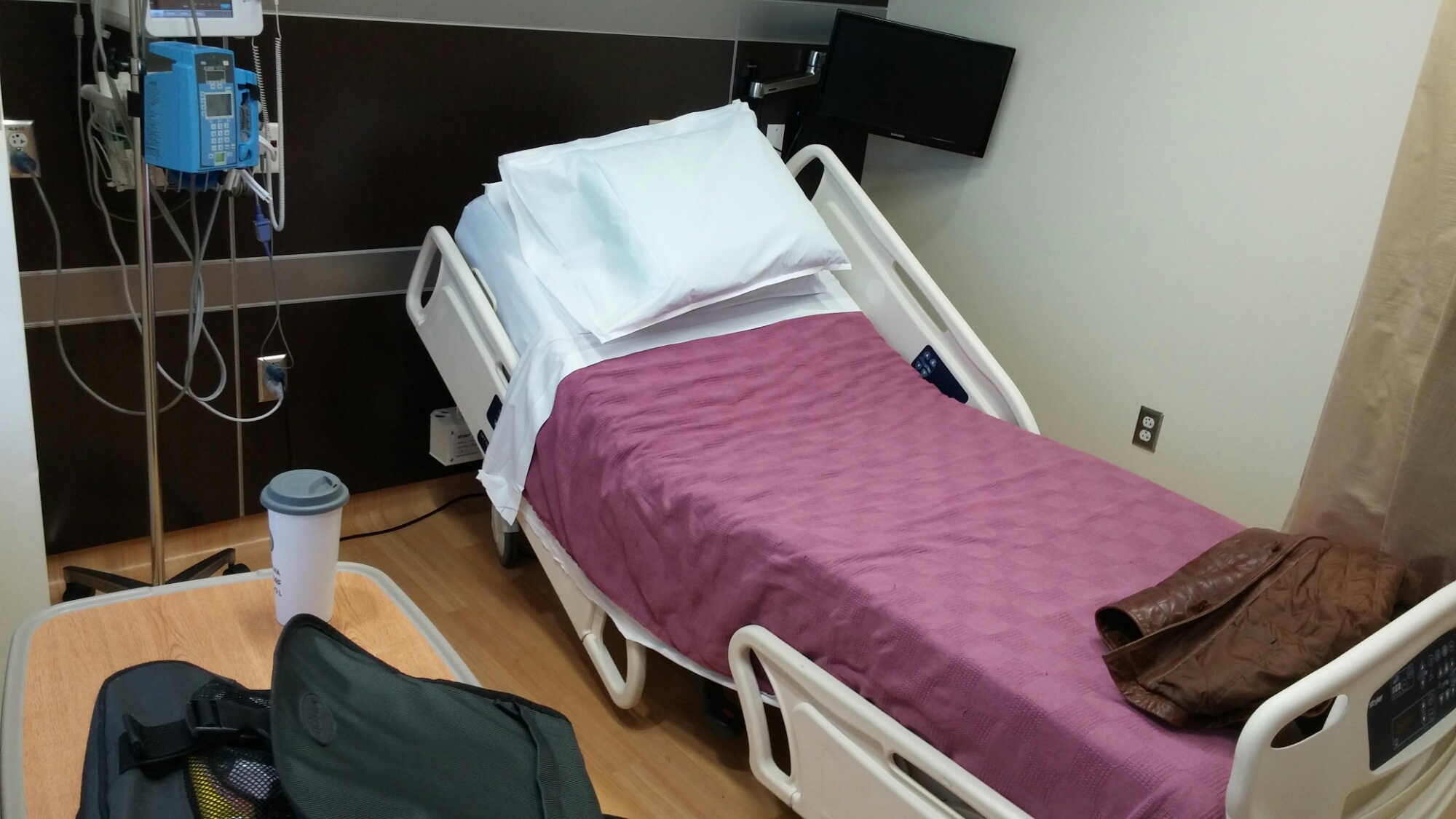On the heels of a recent discussion on changing the Narrative of Cancer as a means to enable better communication and understanding with regard to the hundreds of cancer variants, I came across a very interesting article on a closely related topic: changing the Narrative of Dying. Far from being a depressing or downbeat approach, the article discusses the need for reevaluating our collective understanding of the “end of life” process in order to facilitate a healthier and happier means for saying our goodbyes without forgetting that, until the last moment, we are all still living and participating in this world. It touches on some important ideas, pivoting about the notion that our system, our society, marginalizes and fears death and, more specifically, the process of dying. Yet, death is as much a part of our existence as birth.
Continue reading Narratives Matter, Beginning to End
Tag Archives: Education
Changing the Narrative Through Language
In conversation with my mother, we began talking, as we often do, about politics. She related to me a story about how at a dinner party recently the topic of Ted Cruz came up and how he was receiving support from some of the more conservative members of the dinner party. One of the things that they raised as a positive issue was his opposition to gay marriage, in spite of the fact that, apparently, there were several gay or lesbian friends at this party. That alone seemed pretty uncool, but tact isn’t the point here. My mother’s response was that it isn’t the place of the government to police lifestyle options or the choice of homosexuals to publicly live that way. This is where I put the breaks on the conversation. Lifestyle options and choice are not matters that truly, empirically figure into the equation of whether homosexual, transgender or bisexual individuals are deserving of the same rights and privileges of their sexually straight counterparts, by which I mean fellow citizens. These words are linguistic tools that actually hamper the progress of our understanding by being misleading and, ultimately serve to enforce the stereotypes that the Far Right uses to suppress rights of individuals. As long as the narrative remains unchanged, progress does not occur. Continue reading Changing the Narrative Through Language

The Chemo Diaries Round Six: Cycles End, Cycles Begin
Going into the final round of what I term Phase One of my treatment, I am reflecting a bit on two coincidences that have given me plenty to ruminate on. One of these is the fact that of one of my high school friends who I have not seen in far too many years informed me recently that her spouse is also going through chemotherapy and, interestingly, was just about a week ahead of me in the treatment schedule. The other coincidence of merit this week is that my neighbor will be starting her own chemo treatments at the same time I go in to complete my initial run of this badass toxic cocktail before moving toward a kinder and gentler maintenance schedule.

Neither of these coincidentally timed treatments are for the same cancer, which would have been too weird for believability anyway, and we probably won’t share identical side effects across the board or react too similarly to the drugs, but there is still a commonality of experience that cannot be denied. My friend from high school is one of those rare and thoughtful people who is cursed with the right balance of kindness and patience to really place herself in the center of care giving. It feels weird saying this, but I would not wish that upon anyone, as great a gift as it is. This goes back to my issue with patient guilt, perhaps; I feel lacking when I cannot help those suffering worse than me or I feel guilty about not suffering as much as them, and this extrapolates to me not wanting others to suffer as a result of my condition or being forced to take care of me. Continue reading The Chemo Diaries Round Six: Cycles End, Cycles Begin
Cancer Statistics Show Hope, But Statistics Are Still Bad For You
So… the Centers for Disease Control and Prevention have now begun releasing survival rate statistics for patients with invasive cancer. And it appears to be pretty good news, especially for prostate, breast and colorectal cancer patients. Across the board, however, patient longevity has been on the rise and the one thing that the statistics do make clear is that what they term “survival rates” are increasing.
I am not a fan of “survival” as a description of continuing to live while dealing with cancer. Along with statistics in general, this sort of terminology paints a narrow and misleading picture Continue reading Cancer Statistics Show Hope, But Statistics Are Still Bad For You
Alternative and Complementary Cancer Treatments: Good, Bad and Ugly
An article by Victoria Stern, MA published on the Medscape website in September, 2014 details information on many complementary and alternative cancer treatments. Because not all my readers are likely to have subscriptions to Medscape, and because the article is rather long, I am going to summarize a lot of it here. The comments and opinions below are my own unless cited, and I am not a doctor; the information on studies and data comes primarily from the Medscape article and it, along with Medscape in general, is worth reading if you sign up.
The takeaway on complementary vs alternative treatments remains consistent with what I would refer to as, Continue reading Alternative and Complementary Cancer Treatments: Good, Bad and Ugly

The Chemo Diaries Round Five: Infusion Day
Okay, coming in for round five of six may not be quite as sexy as spending time with Seven of Nine, but it isn’t without its perks today. For one, check out today’s accommodations! I may have to squeeze in a nap, just to take advantage.
Plus, apparently I have managed to gain ten pounds over the past month or so, perplexing the medical staff who are now curious about my diet and exercise… Let’s just say, it hasn’t been my exercise, and maybe that is part of it. Continue reading The Chemo Diaries Round Five: Infusion Day
Survival Rate Statistics and What They Don’t Tell You
The other day I was having a discussion and it came to light that statistics had been bandied about quite early in my post-diagnostic journey. Now, I’m no stranger to statistics, but odds are that, whether you realize it or not, most of you are. That is not to say you have never heard any quoted or identified yourselves among some figure cited here or there… The truth is, one way or another, we are all statistics. And that means, well, virtually nothing. Moreover, even if one out of ten of us understands that even if the median reader gave up two sentences ago and clicked off this page, some readers will actually read most or maybe even all of what I am typing up here, this understanding is still only a basic understanding of a type of statistical qualifier and hardly bridges the gap between acquaintance and friend.
Which is all just a very wordy way of saying that statistics should only be read when one is prepared to interpret them, and while interpreting them it is important to remember that they often cannot highlight a “truth” without refined analysis. Such is the case with the statistical survival rates of adenocarcinoma, my particular flavor of cancer.
By the time I had received my diagnosis, Continue reading Survival Rate Statistics and What They Don’t Tell You
Maximizing Your Cancer Benefits
While it may seem oxymoronic to use the term “benefits” in conjunction with a cancer diagnosis, the fact is that there are going to be some options that open to the cancer patient and ways to take advantage of them which might not be immediately obvious. And the best way to maximize these benefits, of course, begins with an early diagnosis. Just like everything cancer related, the earlier the diagnosis the better, though no matter how late the diagnosis comes it will always be better than an even later one.
Because cancers tend to move at varied rates, it is important to know whether a cancer is of the slow and steady variety or if it particularly aggressive. The options available for an aggressive cancer are naturally slimmer, largely because that cancer needs to be attacked right away. But this can, in its own way, be liberating. When our set of choices is reduced to the bare minimum, it frees us up to focus on other things. There is somehow, amazingly, less to worry about. I do A or B, it works or it doesn’t. There is no waiting or wasting time, just getting into action and rolling with it.
And focusing, then, on what really matters. Continue reading Maximizing Your Cancer Benefits
Nutritional Advice: Sometimes It Doesn’t Feed You
When people believe that you are not healthy, they often want to give you really genuine advice about what they believe will make you better. In a way, this is one of the nicer aspects of human nature. And many people truly, fervently believe that their advice is not only worthwhile, but absolutely correct to almost mystical proportions. This can be especially true of information that is not even relevant to the person’s direct experience, but instead is based entirely upon anecdotal information that the person simply, deeply wants to believe. And this is the problem with so much advice about how to get healthy: it is based on belief and not on knowledge.
Diet is one of the first topics that is likely to come up when talking about cancer treatment. There are a lot of good reasons for this, including
Continue reading Nutritional Advice: Sometimes It Doesn’t Feed You
Cancer: What You Think It Is May Be Just Bad For You
Cancer Is Not Intelligent, Cancer Has No Will
Discussing cancer in general terms often leads to insinuations that Cancer has a motivation. It “overcomes” the immune system. It “figures out” how to defeat a drug. It “is surprisingly good at mutating” into something that can continue to grow in spite of whatever is attacking it. It is “nefarious.” All of these descriptions, and there are hundreds more, imply that Cancer wants something, that it is making an effort, that it has an agenda or goal; the implication is that Cancer has a mind. This is a fallacy of thought that not only makes general discussion more difficult, but it actually can impede treatment and healing. Continue reading Cancer: What You Think It Is May Be Just Bad For You
